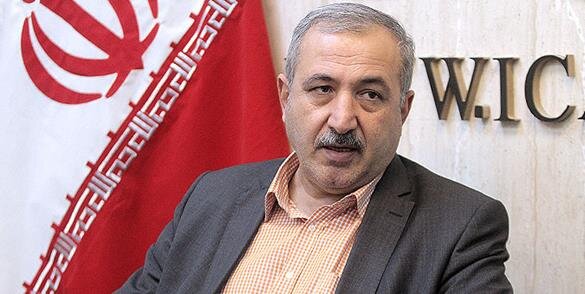MP presents strategies to overcome water shortage

TEHRAN - To overcome the water shortage in the country, a member of the Agriculture and Environment Committee of the Parliament has said it is necessary to transfer of water-intensive industries to water-rich areas, transfer seawater instead of transferring water from one region to another and to take water diplomacy seriously.
"There are at least two domestic and international solutions to overcome the water crisis in the country. The cultivation of water-intensive crops in arid and semi-arid regions must be halted immediately,” Jalal Mahmoudzadeh said in an interview with ISNA on Monday when asked about water crisis in the country.
“For example,” he said, “rice should not be cultivated in Isfahan or Khuzestan (provinces) because rice is a crop that needs flood irrigation, so cultivating this crop in areas with water shortage is ‘irrational’.”
Mahmoudzadeh also said, "We have to take industry to water-rich provinces."
The MP said industrial projects in areas which suffer from water shortage is harming farmers and citizens as well.
"We started a steel industry in Isfahan, which is very water-intensive. Starting industries in arid areas means allocating water needed for agriculture and drinking to industry. The provinces of East and West Azerbaijan and Ardabil are among the provinces that have the problem of excess water, i.e. sometimes excess groundwater causes damage to gardens and crops, while water-intensive industries are not established in these areas."
Mahmoudzadeh added, "I do not mean that the administration should move industries from hot and arid areas to waterlogged areas at once. As we speak now, most of the tendencies of state-owned and quasi-state-owned investment companies are to establish industrial projects in hot and arid areas. My point is to at least prevent these cases."
About water transfer between regions, the representative of Mahabad in the parliament said, "Water transfer requires basic studies. The mere decision to move water from one place to another without environmental and social studies creates a problem. Even the Arab countries desalinate the salt water of the sea and transfer it. We have to invest on this. Intrusion into the fresh water of rivers and groundwater makes our situation worse."
Insisting on the need for modern irrigation, the MP said according to the sixth development plan the administration should have used modern methods for irrigating 600,000 hectares of land during 7 years, but unfortunately only 20 to 25 percent of it has become operational.
He added the Ministry of Agriculture Jihad has done little in this regard, and one of the problems of Iran is traditional irrigation.
Regarding international water governance strategies, Mahmoudzadeh said, "Some neighboring countries, without considering environmental issues and without respecting the rights of other countries, built different dams. Turkey has built the Ilisu Dam, which has dried up 70 to 75 percent of Hur al-Azim, or the dam being built by Turkey in the Sari Qamish region to control the Aras River is four times the size of the Karkheh Dam, and reduces 55 percent of the Aras water inflow into East, West Azerbaijan and Ardabil. Our Ministry of Foreign Affairs must enter into negotiations with Turkey and demand Iran's water rights."
The parliamentarian added, "The issue of water is scientific and not ethnic. We should raise this issue in the context of scientific issues and not regional and ethnic ones. This is a blow to national security. Officials must develop a specific solution for each region based on the specific characteristics of each region. Industrial, agricultural and drinking water must be managed scientifically."
